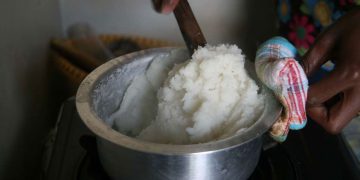
Windhoek produces approximately 84,520 tonnes of waste annually, of which roughly 36% is organic and 16% is suitable for composting or recycling, an official has revealed.
Acting Strategic Executive for Infrastructure, Water and Technical Services, David Adams, said despite expanding waste management facilities, Windhoek’s general landfill has only about three years of operational life left, and its hazardous waste yard is nearing capacity.
“Traditional waste management methods may not be the most efficient solution. Our analysis indicates that Windhoek generates 84,520 tonnes of waste annually, with approximately 36% of that being organic material. Significantly, up to 16% of this organic waste could be recycled. This highlights the substantial potential for increased recycling in our city,” he said.
Adams also said the City would need to divert 6% of the waste currently going to landfills to buy time.
This time would be crucial to implement a comprehensive, integrated waste management plan for 2022 to 2027 that would significantly reduce waste.
He emphasised that waste reduction is the most important goal, followed by recycling, and finally, landfill disposal as a last resort.
“Recycling projections indicate that even a modest 6% diversion from landfills could provide a crucial window of opportunity. This time would allow us to implement a comprehensive waste management plan by 2027, significantly reducing waste,” he said.
This was revealed during the “Improving Solid Waste Management in Windhoek” project, stakeholders’ engagement in Windhoek.
The project is funded by the European Union to the tune of N$44 million. Its main objectives are to improve the solid waste management system in Windhoek by reducing the amount of waste that goes to the landfill, increasing the recycling rate, and creating employment opportunities for the local community.













